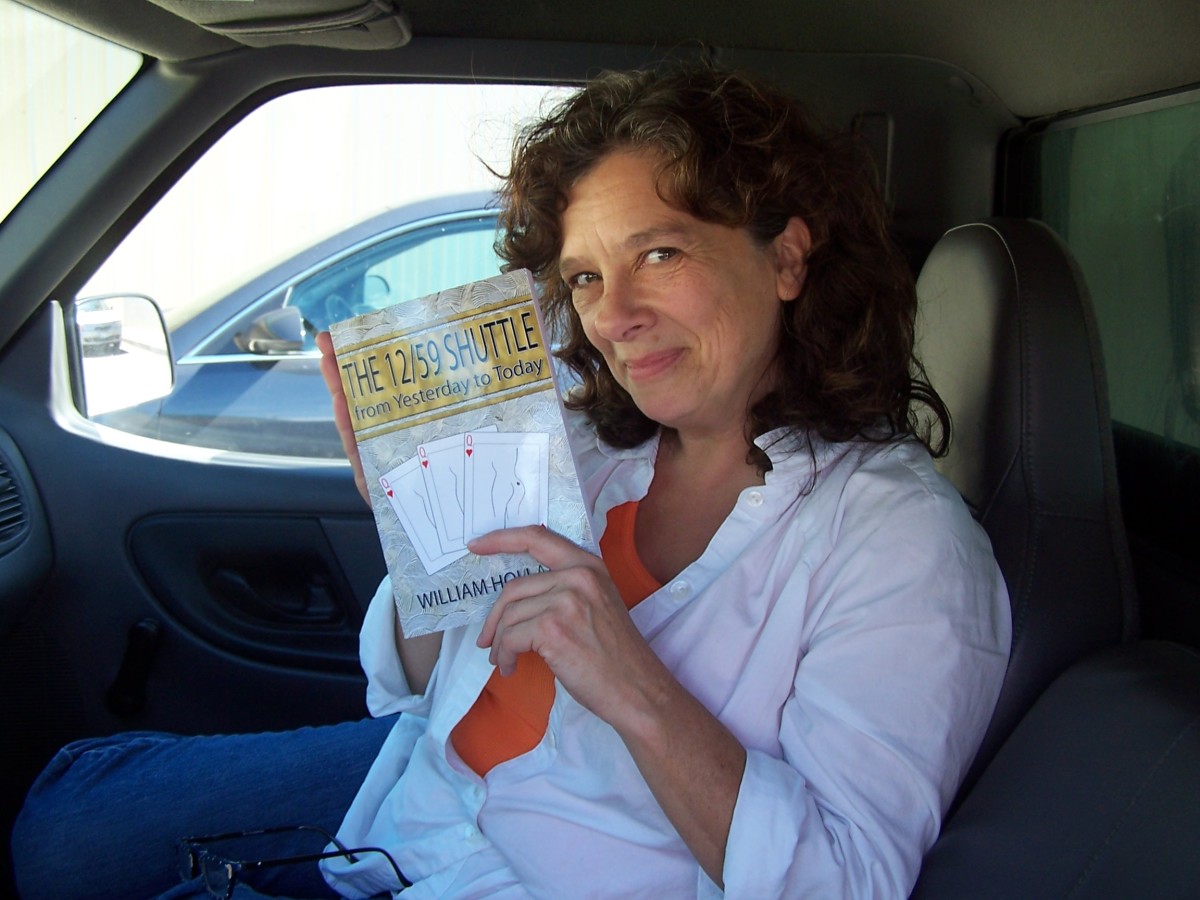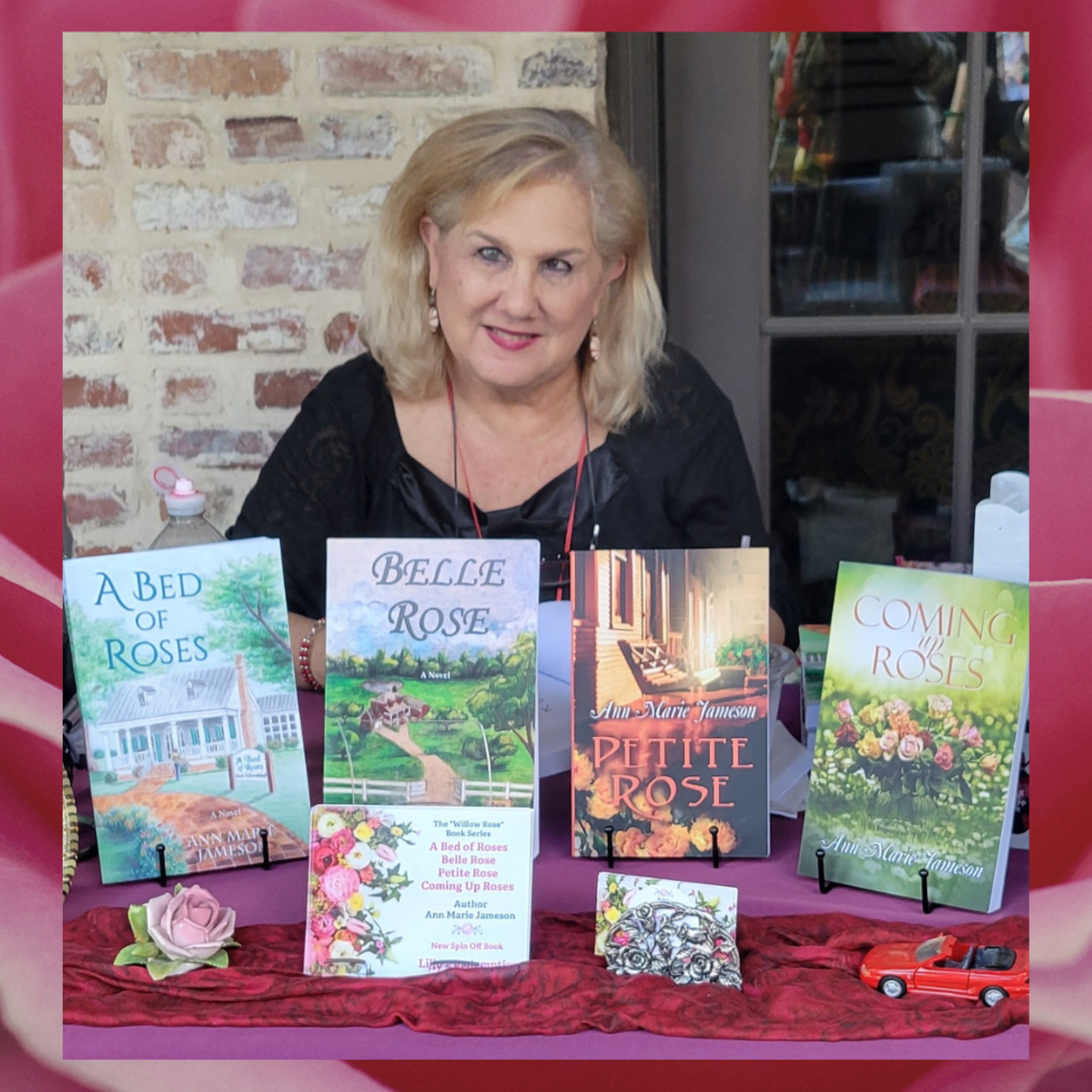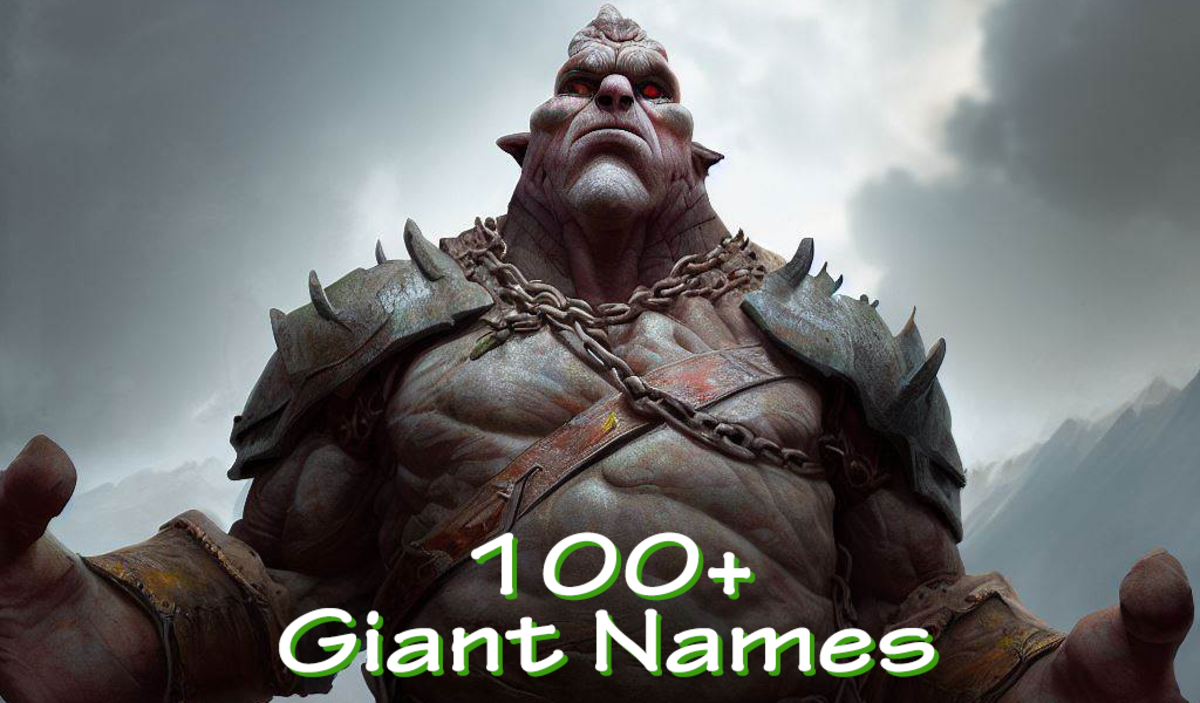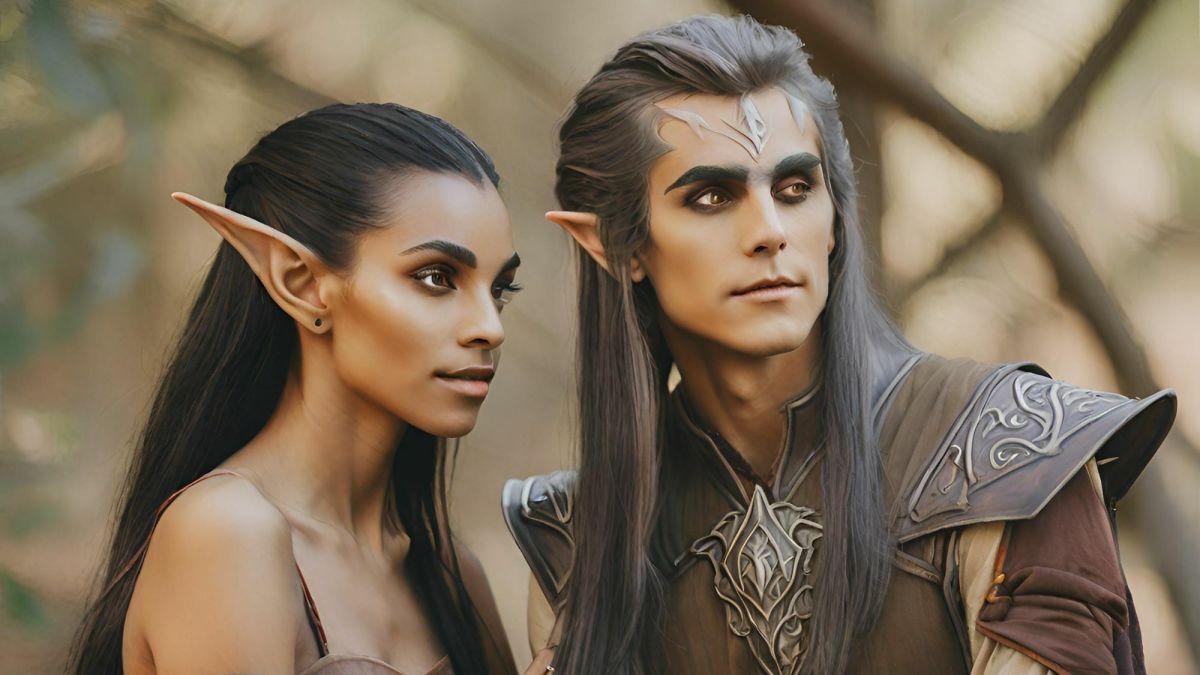10 Rules for Writing A Young Adult Dystopian Novel
*This is merely my own advice I'm giving to the public. If you only accept writing advice from famous authors, this is not the hub for you. Also, my advice isn't based on how to write a mega successful novel or series. A lot of times people who have a genuine love of literature and writing will simply want to write a good story. Sometimes it's not about being a bestselling author, it's about being creative and stretching yourself mentally and emotionally with our words.
1. Understand that you’re writing one story that is simply too long to be told with one novel (if you've decided to write a trilogy), and therefore the creation of three books is needed.
Because you’re writing one story within three books does not negate character development. It maybe one story, but usually it’s over a few weeks to a year of various changes to your characters’ surroundings along with the actions and decisions they have to take to survive the obstacles thrown their way within the story. Your character is supposed to grow emotionally and mentally over that time span, and as a writer you’re supposed to be able to express that emotional growth within the story.
One of the main issues that I had with The Hunger Games trilogy was Katniss’s lack of emotional growth in the subsequent titles. After the first book I expected to see another side to the shrewd and calculating protagonist in Catching Fire, but there was nothing new we found out about the girl. The story progressed, other characters were brought into the story, but Katniss remained stagnant. If anything, she seemed even colder and more distant in the second book and worse in the third and that wasn’t what I was expecting. She was a reluctant heroine, and I get that, but even a reluctant hero/heroine should have redeeming qualities to keep the reader in love with her, but instead I fell out of love with her. That’s just how I felt about her and the story as a whole, but I’m just one person and that’s my feeling and those are my opinions.
The main point is--and I’m using The Hunger Games as an example--your third book should merely be an extended story from the first one, not a whole other story where the characters nor the message of the first story no longer even resemble one another in any way. Your readers should be cheering your main characters on and eating your story up with fervor by the time they get to your third book, not wishing they ever started reading your crap in the first place.
And probably most important of all: You may not need a trilogy. There's no rule written in stone that you have to write a trilogy or saga. Here are some reasons that a person chooses to write a trilogy:
The author is under a contract with a publisher to write a certain number of books and instead of extending themselves in all different directions over time doing all kinds of research for three totally different books they've decided to do a trilogy or a saga to relieve some of the pressure off of themselves. Once you've already signed a contract with a publisher you basically have their trust, and then you'll only have to gain the trust of the public. If you write a really good first book and thousands of people are giving you three, four and five star reviews on Amazon, then you've hooked an audience and garnered a decent paycheck. Now, all you have to do is put the second book out there which is basically an extension of the first instead of having to come up with a whole new idea for a whole new book. Ask 95% of authors and they'll probably tell you that one of the hardest things is coming up with a book/story that tells a different stand-out story than all the others out there and then getting not only an agent, but a publisher as well, to take their work seriously and start paying them. Then think about the pressure after you've written one stand alone novel to come up with another story that your publisher is going to love and put on the market. The average author--writers who aren't making bestseller lists and winning awards--also aren't putting out a different book every single year. Why? Because they don't have time. Most writers have day jobs; writing is their passion, but passion doesn't always pay the rent. If someone has written a successful story and hit pay dirt and it's the beginning of a series, it's almost like hitting the lottery--that's how slim your success is. There are dozens of dystopian novels on Amazon that NOBODY (or very little people) read, every writer has to remember that. You're not just competing against the big names, you're also competing against about a thousand people most readers/consumers have never even heard of. Even if you didn't know that, an agent and a publisher knows it.
Therefore, if you've written a dystopian book and sent it in to an agent they're probably rolling their eyes because it's too similar to something everyone has already read. Or maybe it's not and they simply don't want to take a chance with that particular book. It could be a number of reasons. But the bottom line is, trilogies help the author more than anyone. If you love an author's trilogy, it's more than likely you'll read almost anything else they put out there.
Remember, your story doesn't HAVE to be broken up into three different segments, it can just be one book if a dystopian novel is what you want to embark on creatively. You don't HAVE to abide by all the rules that every single dystopian book author seems to go by which are stated in this article here: http://www.bookkaholic.com/advice-for-writing-a-ya-dystopian-trilogy-if-you-must/, (yes, I realize the person who did that article was joking, but everything said was true) but the thing you have to remember is that most genres that have gained popularity abide by a certain set of rules. It seems that people love cliches at this point. Even if the overall plot of a book is different, every author will do things that the other authors of their genre tend to do. You don't have to, but you're probably taking a risk. And if you're writing a single dystopian novel, you'll probably be taking a risk there as well. But you know what they say: Some risks are worth taking. Not every reader enjoys receiving their stories in installments over a few years' time. You could be the one they've been hoping that would come along without a series of ideas.
2. Even if your main character is fifteen years old, he or she is most likely mature beyond their years.
Dystopian settings usually take characters to a time and place where they don’t have the same privileges and comforts as people do now. It all depends on you, as an author, to decide how much you’re going to take out and how much you’re going to keep from present day to what’s happening in your dystopian society. Normally in dystopian settings the main characters don’t have the option to sit around and watch TV, and they don’t have access to cell phones or cars and the writers give plausible reasons why the characters do not have them. Dystopian societies in YA fictional novels are also set at least one hundred years into the future. One hundred years sounds like an inconceivable amount of time, but look at it in terms of the past. One hundred years ago it was 1913 and my grandfather was born just five years afterward. See? One hundred years ago wasn’t that long ago and there’s enough written (and unwritten) history where you can gauge the attitudes of people and the political atmosphere. Even more, you will notice that people kind of grew up faster than we’re doing now. Same as children in third world countries. If you visit a third world country you’ll (or you know someone who has), or if you watch documentaries and read about children growing up there, you’ll notice ahuge difference between them and us. You could have an orphaned eight year old taking care of another orphaned child, maybe a year or two old, that may or may not be their sibling. You see children preparing their own dinner, and I’m not talking about on a stove either. Some of those children know more about survival and are more mature than some 35 year olds in these industrialized countries. Why? Because they’ve had to face various hardships that many of us can’t even conceive. That’s what creating your dystopian protagonist is about. If you’re a privileged middle or upper class person who doesn’t know anything about human struggle physically and/or emotionally then either start doing some research and broaden your horizons or don’t bother writing a novel set in a dystopian society. (Being in escrow or having your dinner reservations accidentally cancelled does NOT serve as hardship.)
Regardless of what I think of anyone author’s second or third novels, these authors’ works that I’ve read in a dystopian setting--Suzanne Collins, Lauren Oliver, Veronica Roth, and Kiera Cass--all set up their dystopian plots/settings reasonably in their first books. I haven’t read all three of Kiera Cass’s books in her series because I haven’t had time, but Lauren Oliver’s trilogy was executed beautifully. I know that some people thought that she left the end of Requiem a little too open for interpretation (I think “unfinished” is what more than one reviewer called it), but I actually liked how she ended it. Her main point was that the possibilities for the characters was endless and so was the story. She made me want another book and that’s what an author is supposed to make you want in the end. Both Oliver and Cass made their characters mature, but their personalities weren’t a stand-out maturity for our day and age which made their characters more relatable for present day teenagers that read the books. Katniss, Collins’s character, was a survivor and mature and astute beyond most people in our present day in an admirable way. Beatrice, Roth’s character, was supposed to be a survivor, but naïve in certain ways, and that was evident in her first two novels--Divergent and Insurgent--but I have yet to read her third installment.
No matter a character’s age, I hate to read a story about a dumb protagonist, regardless of the POV from which the story is told. The thing about creating a dystopian novel and protagonist is that you get to decide, as the author, how much hardship your main character has gone through and her mental and emotional reaction to it. You get to decide how mature she is and the kinds of decisions he or she makes. And if you don’t make good and sensible decisions regarding his or her development ultimately it will show.
3. Your main character(s) don’t have to be the hero(es).
The common misconception of most authors is that their main characters have to be the heroes of the story, the ones who bring down the tyranny of the reigning regime, or the story isn’t going to be as interesting and that’s simply not true if your main goal is to tell a good story and develop your main characters to their full potential. Especially if you introduce a romance into the story, I’ve noticed that the characters and their internal/secondary plights tend to take a backburner to the runaway plot the author’s created. I can understand how an author begins with the best of intentions and parts of the story get derailed and it seems impossible to get the characters and story back on track; I know, because its happened to me more than once in the past. I have a couple of shelved partially and entirely written novels that I hope will never see the light of day because even their drafts were poorly executed.
As a writer, you have to realize that just because you believed you’ve conceived the perfect story in your head, doesn’t mean that it will come out right once you begin writing it out in black and white. You should know you’re not perfect so don’t expect the story to come out perfectly the first time. Or the second. And sometimes the third. If you see that your story is getting off track try to go back and correct what you think went wrong and go from there.
Whether you write your characters as the hero or not, keep in mind that you’re supposed to be writing a story that you’d want to read yourself. If you think your story is more compelling if your main character is a leader, stick to it, and make your readers believe it, but just know there are other options. Your story, along with your characters, can be just as compelling and well developed as residents within your dystopian society that aren’t stand out special within that society, but can end up being beyond special and noteworthy to your readers.
4. Don’t make your plot so intricate that you lose sight of your characters and their relationships and development.
Remember this: Your story is what brings your characters into view, but it’s your characters that bring your story to life.
A lot of writers that get caught up in trying to make their dystopian story/plot different from all the others before theirs that everyone had already read they end up focusing so hard on the plot that their hero/heroine plot eclipses their characters’ growth and relationships. Though I can understand it, that is something that shouldn’t ever happen. If your plot begins to blur your view of your characters’ development you need to breathe, reboot, and go back and tweak something. In the end, readers will remember the complexities of your characters long after the smoke of the story is cleared.
If there’s a love story taking place, be true to it. If there are familial relationships that need repairing, amend them realistically and with care. Your readers will know how much love and respect your story AND your characters once they get their hands on your books, keep that in mind.
5. Find a reasonable way to blend realism and this “fantasy” world you’ve created.
Nobody ever said your fantasy world was a utopia; it can be a nightmare world just as easily. Ultimately, dystopian worlds are living nightmares. Also, your dystopian world has to be believable and relatable on some level no matter what elements you introduce to your readers.
I’ve also noticed that very few dystopian novels blend supernatural elements, but that doesn’t mean that it’s impossible. As long as you blend the world of humans and human nature with “what could be out there” it could work, but don’t try to be too overzealous in any pursuit.
Dystopian plots are borne out of “what could be” in both a hopeful manner and a distraught voice. But you have to make it entertaining without being too contrived, and you have to paint a vivid picture of how bad the turn of the world becomes without depressing your readers so bad they end up not wanting to read the story anymore.
There is no right or wrong way to blend the two worlds, but the best way to incorporate realism into your fictional world is to create a story that characters have realistic emotions. One of the things I hate is when a girl just looks at a guy in a story and falls for him. It’s stupid. It makes your character look stupid. It makes you come across as immature mentally and emotionally. I can understand your character being infatuated with their would-be love interest right off the bat, but making them “fall in love” by chapter five after they’ve known one another for two minutes and before you’ve given them any real reason to like one another at all makes the love story come off as cheap. And it’s unrealistic. Ask yourself if your own story makes sense to you, and be honest with yourself. Ask yourself if you would want to read the story you’ve written if it were someone else’s, and be honest, or your story will not be your best. The only way you’re going to blend the real world with your fictional world and make others believe it will be to invest your emotions in it so that you bring that out in your characters and your story, and that’s the bottom line.
6. A fast paced story doesn’t mean a fight sequence every other chapter.
If you feel like your story is dragging and you need to throw in physical violence to pick up the pace, you need to reevaluate the priorities of your story. Every fight in your story should mean something and shouldn’t be a page filler. I’ve read dystopian novels where the violence is disorienting and for two or more pages I’m not even sure what’s going on. Instead of focusing on how many bruises and bloody noses you can give your characters, focus on character and story development.
7. Not all of your characters have to be virgins (especially your main characters).
Most young adult dystopian authors aren’t shy when it comes to being as violent as possible, but they shy away from sensual/sexual situations. It doesn’t to, nor should it be graphic erotica, but there are ways to connect your characters in ways other than them gazing into one another’s eyes, holding hands and quick pecks on the cheek if you have a romance developing or one that has developed.
No matter what anyone tells you, a person’s fictional stories reflect them personally on some level. No author can write a 300+ page novel and their personality or mental and emotional growth isn’t present. The same goes for singers who write and perform their own songs. It’s disturbing to me when a woman has written a book and begins a love story between her characters and can’t flesh it out, but didn’t have any problem with the bloodshed, having her story filled with 65% violence. In my opinion, it says that you’re more comfortable with demolishing something than creating it; you’d rather hack someone to pieces than hug them. Intimacy scares you.
This isn’t a horror movie you’re writing where if your main character is a virgin they’re going to end up dead or maimed. This is a dystopian story. And stop acting like sex is the worst thing in the world someone could possibly ever do in their lives.
For me, it’s unrealistic to write your characters in intimate situations and presenting them with hormones, and yet pretending that they do not exist. Two eighteen year olds aren’t going to be in a life and death situation and be one another’s lifelines over weeks and months and not even think about kissing one another. It’s also unrealistic to write a sixteen and seventeen year old having make out sessions over a long time period (weeks or even months) and sex isn’t anywhere in the equation. You can choose to make it a big deal or not, but I personally don’t think it’s okay to ignore it. Oddly enough, I’ve noticed that in other young adult novels about real people in the present world authors usually approach the subject of sex with little apprehension and it’s normal, but it’s most authors of dystopian and supernatural young adult fiction seem to have more of an issue with it with the exception of a handful of that I have read. It doesn’t have to be raunchy or anything close to it, but it should be dealt with since you’re writing for preteens and teens who are dealing with those issues more so than most of the other issues you present. The important part is to remember who you’re writing for and keep their issues in mind so that you can address some of those within the pages of your novel because if you don’t you’ve missed the mark.
8. Try to avoid all of the pointless deaths.
If you’re going to kill a character, make it count. The worst thing I think people can do in their novels is introduce characters and then kill them arbitrarily. Or worst yet, if after a character has been killed, you realize that the author only introduced them to his or her readers to have a character killed off in the first place.
**SPOILER ALERT**
I know she isn’t in the dystopian author category, but I feel I can use Cassandra Clare, who is actually one of my favorite authors of today, in this category. When she killed the little boy Max in her Mortal Instruments saga I was very angry. To me it felt obvious that she put him in the book just to have a character to kill and that sucked. He was a little kid, he didn’t really mesh with her storyline, and after the battle someone close had to die. She could’ve killed Isabelle or Alec, even Jace or Clary, or one of their parents, but her choice was to kill a kid, maybe she wasn’t sure of what to do with his character (him being so young and all) book after book, so she took the easy way out and “got rid” of him. Then there was Suzanne Collins with all of the characters she killed by the time she got to her third book to either avoid dealing with incorporating them into the story or just to have someone to kill off during her infiltration of the Capitol to kill President Snow. The bad part was that I saw those deaths coming a mile away and I was irritated that she made readers care about them at all just to discard them like she didn’t even care in the first place.
*END SPOILER*
When an author actually cares about the characters she creates she’ll have a hard time killing them. I personally do. I try not to unless it’s absolutely necessary within my story. Even if it’s the end of a series, you have to make their deaths mean something and it better damn well be huge or your readers will feel cheated. For me, it’s a hard choice even if it’s been planned all along. And if someone dies within my story it does have a significant meaning to me, and for anyone who reads my books I hope I won’t ever have to explain a character’s death because I hope the person who reads the story understands it. And if I do end up having to explain it, I'm going to be truthful no matter if people like or dislike my reason for the choice I made.
At the same time, sometimes having a character die in a novel is even greater than the story. Sometimes it can help someone through something in their personal life; sometimes one sentence of dealing with grief can salve someone’s heart and mind who’s in pain after having lost someone or something that meant something to them in life. It’s important to deal with death and grief, but even more importantly, as a writer, it’s your job to tie up things and make them make sense because not all things in life do. In fact, most things in life are hard to understand and that’s why most of us write fiction. We want to go down that road and make things right because so many things in reality aren’t. The point of being an author of fiction is to weave together and create another place for a person to want to be inside, not make them feel bad for taking the journey. Make it count. If you must do it, do it, but don’t do it for the hell of it.
9. Avoid letting your characters do stupid things when you know better and you also know the reader knows better.
I guess most authors of young adult fiction tend to go this route because they think if a girl or boy is in their teens they must walk into a swarm of snakes just because…well…they’re young and therefore can’t know any better. I don’t know why authors still let their characters make the most absurd mistakes possible. It’s like a horror movie where EVERYONE, including the character in the movie, should know not to open a certain door, but they do it anyway. We’re all past that type of thing at this point and by now it’s clichéd.
And just because they’re teenagers doesn’t mean they have to make obvious mistakes.
Again, I’ll use The Hunger Games as an example. I’ve said a lot of things about Catching Fire and Mockingjay, but I haven’t really said how much I actually adored the first book. I still love the first book in spite of how the story (and Katniss) ultimately turned out. I also love the way Suzanne Collins didn’t make Katniss into a cliché. She didn’t let her make silly mistakes in the first book. She let horrific events unfold and she allowed Katniss to rise above it. It was a wonderful gift to give a reader in the wrapping of a young adult novel and I greatly appreciate Collins for doing so. I also think others should follow her lead.
10. Answer his one question for yourself honestly (you’re only hurting yourself if you don’t): Why are you writing this as a dystopian novel in the first place?
Tell the truth. Is it for money? Is it because you saw other authors gain fame and success from that particular genre? Is this a story you just HAVE to tell or your eyes are going to burst out of your skull?
There is no right or wrong answer. People write their stories, whether they’re full novels, novellas, or short stories and want them read by other people who will enjoy them and appreciate them. Some people write for money, some write for fame, some write because they simply enjoy the craft. Some people do it for all of the above.
The reason that this is rule number ten is because your story may not necessarily be suitable for a dystopian setting. Writers sometimes have their settings and plots thought out already in their heads and their characters come later. And then suddenly, you’re in a whole other ballgame. Once you’ve got your characters in place, their own stories come into the mix and your story is put into a whole other territory. Dystopian settings are a time and a place and they can help shape your characters, but they don’t necessarily make or break your characters. YOU, the writer, make or break your own characters and that’s something you need to remember. You may start out writing two sixteen year old characters in a dystopian society/setting, but as they begin to take form within the story and you develop them more as individuals in your head, your gut instinct may be to have them in a whole other setting, but you’d rather make them older so you can introduce more adult situations. Your characters didn’t really change drastically, but you tweaked certain aspects of your story. Don’t just do what you think will make the most money for you or garner the most attention, go with your gut and be true to your story because your gut just may lead you towards more success rather than you sticking to a story that you know in your bones feels wrong.
You could be an excellent writer, but that doesn’t mean that you’re meant to write in every genre. Maybe you can and maybe you can’t, but your readers will give you feedback and let you know they think in the end. Just because you can’t really write a dystopian novel that you feel good about doesn’t mean that you don’t have any talent, it just means that you couldn’t really write that particular story. Don’t feel bad about it and don’t beat yourself up over it. Who knows? A year from then, or maybe even ten, your dystopian novel will finally click for you and you will end up writing a great story that not only you will love but that others will love as well.When writing any story, be patient with yourself, your story, and your characters. In the end, you’re creating that world, you’re writing it, and therefore you’re pretty much living in it as well. Be true to it. And if you feel yourself pulling away from the story itself but you’re due to write a continuation of the story you need to be honest with yourself, find out why you’re not feeling your own story anymore, and try to do your best and not just throw something half done at the people who support you--whether it’s 2,000 people, 20,000 people, or 2,000,000 people. Your readers trust you. Don’t violate that trust. And respect the craft.








